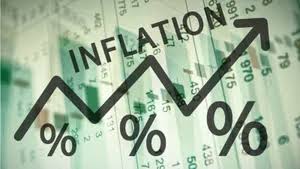
Nigeria inflation hits 34.19 percent in June – NBS
By Matthew Denis
Nigeria’s inflation figure has reached a new high, hitting 34.19 % for June 2024, according to the latest data from the National Bureau of State Statistics (NBS) on Monday.
This is an increase of 0.24% points when compared to the inflation figure for May 2024 released by the NBS.
In June 2024, the headline inflation rate increased to 34.19% relative to the May 2024 headline inflation rate which was 33.95%.
Looking at the movement, the June 2024 headline inflation rate showed an increase of 0.24% points when compared to the May 2024 headline inflation rate,” the NBS said in its Consumer Price Index (CPI) – which measures the average change over time in the prices of goods and services consumed by people for day-to-day living – released on Monday.
On a year-on-year basis, the headline inflation rate was 11.40% points higher compared to the rate recorded in June 2023, which was 22.79%.”
According to the NBS, the headline inflation rate, year-on-year basis, jumped in June 2024 when compared to the same month in the last year.
It said on a month-on-month basis, the headline inflation rate in June 2024 was 2.31%, 0.17% higher than the rate recorded in May 2024 (2.14%).
This means that in the month of June 2024, the rate of increase in the average price level is higher than the rate of increase in the average price level in May 2024,” the agency said.
As expected, there was a rise in food inflation for June 2024 in comparison with the figure recorded in May 2024.
“On a month-on-month basis, the Food inflation rate in June 2024 was 2.55% which shows a 0.26% increase compared to the rate recorded in May 2024 (2.28%),” the CPI report read.
According to the NBS, this hike was triggered by a rise in the average prices of food items such as groundnut oil, palm oil, etc (oil & fats class), water yam, cocoyam, cassava, etc (potatoes, yam & other tubers class), tobacco, catfish fresh, croaker, mudfish fresh, snail, etc, (fish class).
The Federal Government had in the wake of the galloping prices of essential commodities reeled out a raft of measures to address the challenge. It recently suspended duties, tariffs, and taxes on the importation of maize, husked brown rice, wheat, and cowpeas through the country’s land and sea borders, for 150 days.
It also approved the procurement of 2,000 tractors, and 1,200 trailers and set up a committee to help in proffering solutions to the food crisis rocking the nation.
Experts have blamed insecurity, lack of equipment, and other issues as major challenges affecting food production in Nigeria




